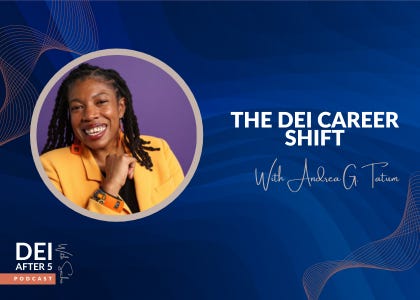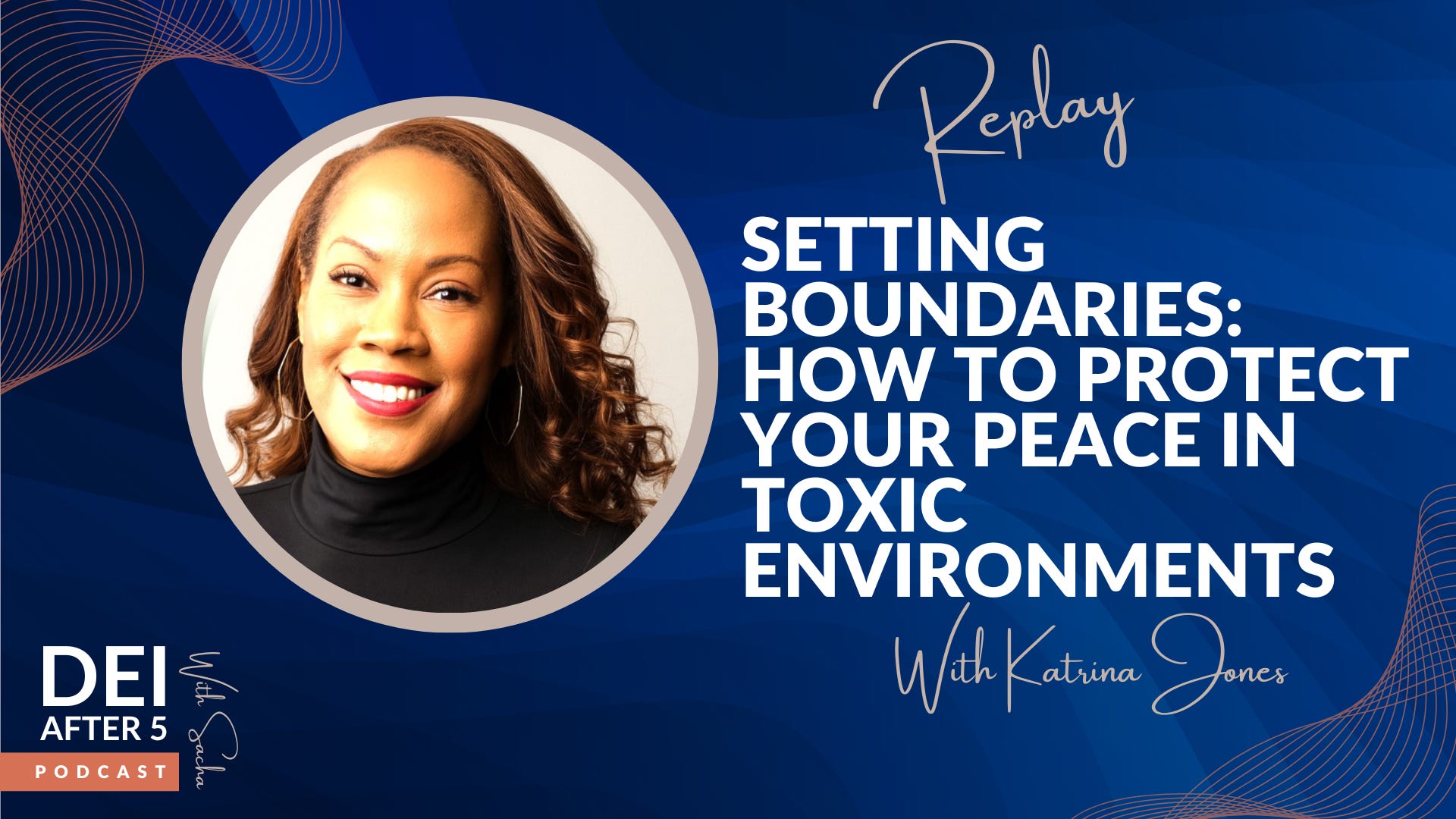The DEI Career Shift: Insights with Andrea Tatum
Description
The Evolution of DEI Roles and the Importance of Skills Alignment
In recent years, Diversity, Equity, and Inclusion (DEI) roles have experienced significant transformations, largely in response to shifting organizational priorities and economic conditions. As discussed in this episode, many organizations are reevaluating their DEI initiatives, with some even scaling back due to external pressures, such as anti-DEI legislation. However, this evolution presents a unique opportunity for individuals to focus on how their existing skills can contribute to organizational goals, regardless of whether their job title explicitly includes DEI.
Understanding the Landscape
Sacha and guest, Andrea G. Tatum, highlight that the current economic climate has prompted many companies to scrutinize their bottom lines, resulting in layoffs and a reevaluation of roles across various departments. This reassessment has created a divide: some organizations are abandoning DEI efforts altogether, while others recognize the importance of embedding DEI principles into their core operations. For those looking to enter or transition within the DEI space, it is crucial to understand this landscape and how their skills can align with organizational needs.
Skills Over Titles
One of the key takeaways from the conversation is that DEI is not confined to a singular job title or department. Instead, it is an ecosystem that spans various functions within an organization. Individuals should recognize that their roles—whether in HR, marketing, product management, or any other area—can incorporate DEI principles. For example, a talent acquisition professional can influence diversity in hiring practices, while a product manager can ensure that products are developed with an inclusive lens.
They emphasize the importance of moving beyond a narrow focus on DEI job titles. Instead, individuals should consider how their skills and experiences can contribute to creating a more equitable and inclusive workplace. This means being able to articulate how their work impacts DEI outcomes, even if their official title does not reflect that focus.
The Importance of Results
As Andrea
points out, it is essential for individuals to frame their experiences in terms of results. When applying for jobs or discussing their career narratives, candidates should highlight not just what they have done, but also the outcomes of their actions. For instance, rather than simply stating that they managed an Employee Resource Group (ERG), they should explain how that management led to increased engagement or improved retention rates among underrepresented groups.
This results-oriented approach is particularly important in a competitive job market, where organizations are looking for candidates who can demonstrate their value in tangible ways. By focusing on how their skills can drive organizational goals—such as enhancing employee engagement, improving customer satisfaction, or fostering innovation—individuals can position themselves as valuable assets, regardless of their formal job titles.
Conclusion
In conclusion, as DEI roles continue to evolve, individuals should embrace the idea that they can contribute to DEI efforts from any position within an organization. By understanding the broader ecosystem of DEI, focusing on their transferable skills, and articulating the results of their work, they can effectively align themselves with organizational goals. This proactive approach not only enhances their career prospects but also supports the ongoing need for diversity, equity, and inclusion in the workplace.
This is a public episode. If you'd like to discuss this with other subscribers or get access to bonus episodes, visit deiafter5.substack.com/subscribe










